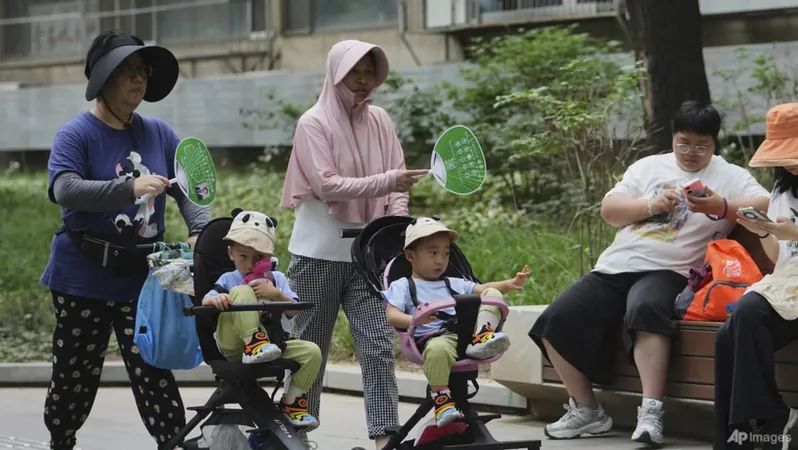
China's Childcare Subsidy Dilemma: Unwed Mothers Left in the Lurch
2025-08-21
Author: Wei
Sichuan's Controversial Childcare Policies for Unwed Mothers
In a troubling turn of events, an unwed mother from Chengdu has brought attention to a critical issue facing single parents in China. In a recent post on an official forum, she questioned whether children born out of wedlock would qualify for childcare subsidies, highlighting the rigid regulations that are creating barriers for many families.
Shenzhen's Strict Policies Raise Alarm
Her inquiry was partially inspired by a viral incident from Shenzhen, where a single mother was denied subsidies for her registered child merely because she lacked a marriage certificate. This case has raised significant concerns about fairness and accessibility within the system.
Official Regulations and Family Units
Responding to these concerns, the Sichuan Provincial Health Commission stated that childcare subsidies are only available to children under three years old born "in accordance with the laws and regulations" after January 1, 2025. More critically, applications for these subsidies hinge on the completion of marriage registration, effectively excluding unwed mothers.
Cash Incentives Amid Declining Birth Rates
In a bid to combat declining birth rates, the Chinese government has introduced annual cash payments of 3,600 yuan (approximately S$643) for each legitimate child under three. However, officials admit that these subsidies are meant to enhance the family's cash income, without considering the unique challenges faced by single parents.
Rising Single Parenthood and Online Outrage
As divorce rates and single parenthood continue to rise, frustrations have spilled over onto social media, where users express their outrage at the discriminatory policies. Critics argue that the system neglects the realities of modern families, reinforcing the notion that a marriage certificate is more important than maternal dedication.
Supporters of the policies argue that they help combat issues like illegitimacy and potential abuse of the system, but many see this as a harsh judgment on individuals facing societal stigma.
Conclusion: A Call for Change
With the birth and marriage rates at historic lows—around 9.5 million births and 6.1 million marriages recorded in 2024—many advocate for a reevaluation of these stringent policies. As debates heat up across online platforms, the question looms: will China’s childcare subsidy system evolve to support all families, regardless of marital status?



 Brasil (PT)
Brasil (PT)
 Canada (EN)
Canada (EN)
 Chile (ES)
Chile (ES)
 Česko (CS)
Česko (CS)
 대한민국 (KO)
대한민국 (KO)
 España (ES)
España (ES)
 France (FR)
France (FR)
 Hong Kong (EN)
Hong Kong (EN)
 Italia (IT)
Italia (IT)
 日本 (JA)
日本 (JA)
 Magyarország (HU)
Magyarország (HU)
 Norge (NO)
Norge (NO)
 Polska (PL)
Polska (PL)
 Schweiz (DE)
Schweiz (DE)
 Singapore (EN)
Singapore (EN)
 Sverige (SV)
Sverige (SV)
 Suomi (FI)
Suomi (FI)
 Türkiye (TR)
Türkiye (TR)
 الإمارات العربية المتحدة (AR)
الإمارات العربية المتحدة (AR)